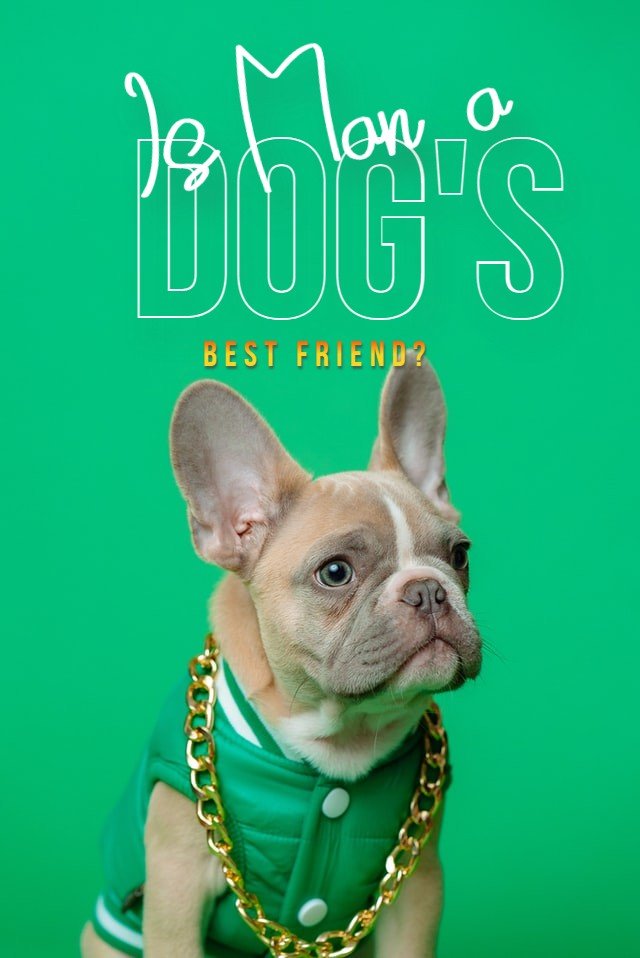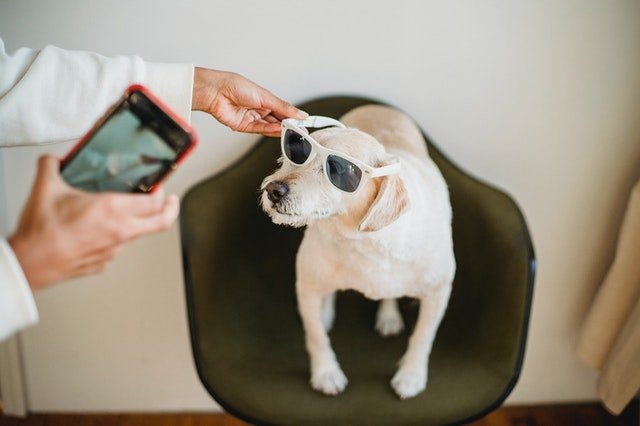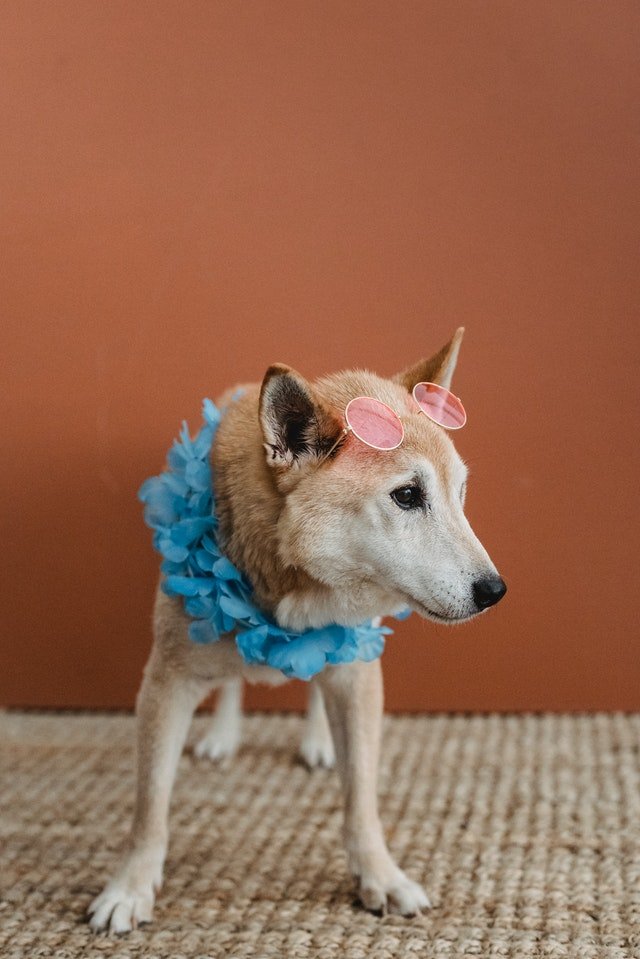
Dogs are man's best friend, we all know that, but why doesn't man become a dog's best friend? People nowadays try to raise their pets as if they were their own children, but is this right or wrong? It all depends on how excessively the pet is treated
El perro es el mejor amigo del hombre, eso todos lo sabemos, pero ¿por qué el hombre no se convierte en el mejor amigo del perro? Las personas actualmente pretenden criar a sus mascotas como si fuesen sus propios hijos, pero ¿esta esto bien o mal? Todo depende del exceso en el trato que se le da a la mascota.


Nowadays you can notice the amount of human-like accessories that are sold on the internet for the use of pets such as shoes (which in my opinion are unnecessary in certain opportunities, except in the case of sled dogs), clothes, costumes, paints, lotions and cars that can be used in dogs with disabilities and not in all cases, since if they lack any limb or do not have mobility in some of these, there are prostheses and physiotherapy.
Hoy en día se puede notar la cantidad de accesorios parecidos al de los humanos que venden por internet para el uso de las mascotas como zapatos (que a mi pensar son innecesarios en ciertas oportunidades, exceptuando el caso de los perros de trineos), ropa, disfraces, pinturas, lociones y coches que bien pueden usarse en perros con alguna discapacidad y no en todos los casos, ya que de faltarle alguna extremidad o no tener movilidad en algunas de estas, existen prótesis y fisioterapia.


Now, why is it okay to treat our pets like humans? Several studies attribute this attitude to consumerism and individualism and that it is the result of personal isolation, insecurity and communication at a distance; it is also due to the fact that people feel the need to want to overprotect them and, as a "reward" because they seek to fill an emotional void that in many cases are unresolved grievances. These people have the pretension of understanding the animal's emotions, without knowing that they are making a mistake, because they seek to find a similarity between the actions of their pets and those of humans.
Ok, having the above in mind we now have to say how this attitude affects our pets. While it is true that the bond between humans and dogs (to give an example) goes back more than twenty thousand years when humans shared hunting, territory and food with them, and contact was obtained to make these dogs more docile, obedient and faithful companions; we must always take into account the position of each species, it is clear that being a dog does not deserve to be all the time in the yard of a house no matter if it is a sunny or rainy day, but neither should we treat it like a person (and with this I do not mean that it should not be given love and attention, on the contrary) if you have a dog, he (or she) deserves to be treated according to their species, they have their needs and their specific treatment.
Ahora bien, ¿a qué se debe el que esté bien tratar a nuestras mascotas como humanos? Varios estudios atribuyen esta actitud al consumismo e individualismo y que es el resultado del aislamiento personal, la inseguridad y la comunicación a distancia; también se debe a que las personas sienten esa necesidad de querer sobreprotegerlos y, como “recompensa” porque buscan llenar un vacío emocional que en muchos casos son duelos no resueltos. Estas personas tienen la pretensión de comprender las emociones del animal, sin saber que comenten un error, porque buscan encontrar una similitud entre las acciones de sus mascotas y las del humano.
Ok, teniendo lo anterior en cuenta ahora tenemos que decir la manera en cómo afecta esta actitud a nuestras mascotas. Si bien en cierto que el lazo que une a los humanos a los canes (por poner un ejemplo) se remonta a más de veinte mil años cuando los humanos compartían la caza, el territorio y los alimentos con ellos, y se obtuvo el contacto para volver a estos canes más dóciles, obedientes y fieles compañeros; debemos siempre tener en cuenta la posición de cada especie, claro está que por ser un perro no merece estar todo el tiempo en el patio de una casa sin importar si hay un día soleado o lluvioso, pero tampoco debemos tratarlo como a una persona (y con esto no quiero decir que no se le debe dar amor y atención, todo lo contrario) si tienes un perro, él (o ella) merece ser tratado acorde a su especie, ellos tienen sus necesidades y su trato en específico.


When we treat a dog as people, this treatment can perhaps be considered as animal abuse, because introducing an animal to a scheme that is not part of its essence affects its perspective and it is (even) unable to procreate, because it does not see the others of its species as its peers. Pets with humanizing masters run the risk of suffering from stress disorders, anxiety, overweight, they are also unable to socialize with others of their species.
So we need to ask ourselves the question: are we good pet owners? If we know how to differentiate between taking good care of him and humanizing him, as well as differentiate in the position of the breeds in which we are and our pet knows who is the leader of his pack, then we are good masters. Obviously we always have to see our pets as part of the family since they depend one hundred percent of us and we in a way depend on them, also how not to give all our love to these little creatures that only have love to give when they are well treated? And knowing that when they see you and you hug them, their brains release oxytocin, yes, the same substance that your brain releases when you are in love.
Cuando tratamos a un perro como personas, este trato quizás pueda ser considerado como maltrato animal, debido que al introducir un animal a un esquema que no es parte de su esencia afecta su perspectiva y es (incluso) incapaz de procrear, porque este no ve a los demás de su especie como sus pares. Las mascotas con amos humanizadores corren el riesgo de sufrir trastornos de estrés, ansiedad, sobrepeso, también se les imposibilita socializar con otros de su especie.
Entonces es necesario que nos hagamos la pregunta ¿somos buenos amos? Si sabemos diferenciar entre cuidarlo bien y humanizarlo, así como también diferenciar en la posición de razas en las que nos encontramos y nuestra mascota sabe quién es el líder de su manada entonces si somos buenos amos. Obviamente siempre tenemos que ver a nuestras mascotas como parte de la familia ya que ellos dependen el cien por ciento de nosotros y nosotros en cierto modo dependemos de ellos, además ¿cómo no brindarle todo nuestro amor a esas criaturitas que solo tienen amor para dar cuando son bien tratados? Y sabiendo que ellos cuando te ven y los abrazas, sus cerebros liberan oxitocina, si, la misma sustancia que libera tu cerebro cuando estás enamorado.

